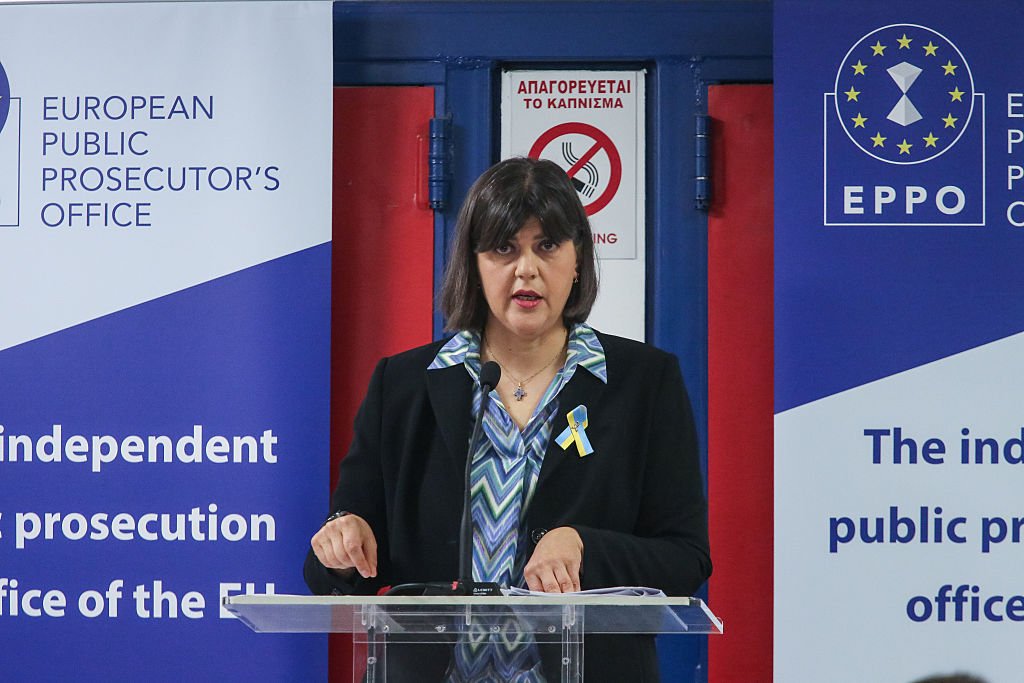‘We are the nation’s punching bag’: Shortages, abuse, and burnout in German pharmacies
Source: Euractiv
Uta Mühle is one of those pharmacists who go to great lengths for their customers, doing everything possible to obtain medicines in times of shortage. But running a pharmacy in Germany is no longer a lucrative business: In just the first half of this year, 271 branches closed, with only 31 new ones opening.
Here, she speaks about “legal drug dealing” and the daily tribulations of her profession.
What follows is an edited transcript.
How does an ordinary pharmacist suddenly become a hate figure?
Mühle: I actually run two pharmacies, one of them is the St. Georg Pharmacy in Georgenthal, a small town in Thuringia. I come from the neighbouring village. In August, a customer came to me with a private prescription for an antifungal medication that is only available as a reimport. We opted for a product imported by the company Eurim, and our ordering system showed a recommended price of €10.53 for it. Alternatively, there was something else for €14.
And then the customer, unfortunately, peeled off the label at home…
Exactly. I’ve now had to learn what was underneath it. It showed the Greek price: €2.28. And that made him so furious that he recorded a TikTok video insulting us for two minutes straight – calling us criminals, vermin, Jews.
In the video we can see one of the customer’s tattoos, which is associated with the far-right.
Exactly. Unfortunately, I only learned about the video on September 25. By then it had already been seen by 32,000 people, liked 1,250 times, and had 174 comments – including explicit calls for violence. I hired a lawyer, and the video has since been taken down. But I still receive death threats.
That’s extreme, of course, but the head of the European Pharmacists’ Association, PGEU, recently told me that aggression from customers has become part of everyday life. Do you agree?
Yes, absolutely. Since COVID, people have become much thinner-skinned, and we pharmacists are also a kind of psychological point of contact, because we take time for people. And so we’re on the receiving end of their frustration. I also employ pharmacists with a migrant background – they have it even worse. Almost daily, I have to tell someone they’re no longer welcome in my pharmacy.
And how much of this is linked to medicine shortages?
Often. Many customers simply don’t want to accept that a lot of medicines are hard to get, and they also don’t want reimports. But I explain again and again that these are often the original German products. The manufacturer sells them cheaper in another country, which makes it worthwhile for companies to reimport them. Usually, they get new packaging, but in about 20 per cent of cases, they don’t. Then they’re labelled in Cyrillic, Italian, Latvian, whatever, plastered with stickers – but at least they’re cheaper, or available at all.
So reimports are also a service for customers?
Absolutely. Take Ozempic, the diabetes medication. For a long time, it was only available via reimporters, requiring enormous effort. That was because the UK pays more for it, so the products made in Germany were exported directly there. Only in the past few weeks has it become easy for us to obtain Ozempic.
According to the European association, the average pharmacist spends 11 hours a week chasing scarce medications. What about you?
I recently analysed this with my team: every second prescription is not readily available. The e-prescription system makes it even more complicated. Take the blood pressure medicine Felodipine. The e-prescription specifies exactly a 100-pack, but that’s simply unavailable anywhere right now. I could just give out five 20-packs, but under the new system, that’s very cumbersome – it was much less bureaucratic with paper prescriptions.
Can you put the workload into numbers?
We have 27 employees, five of them pharmaceutical-commercial assistants. One of them works exclusively on procurement – I jokingly call her our perfectly legal drug dealer. But the others are also constantly on the phone, trying to find alternatives with doctors. So 50 to 60 hours of work a week for this is nothing unusual. And then there’s the frustration of the customers on top of that.
Can politics ease the pressure?
That’s why we pharmacists take to the streets – because we’re expected to do all of this on top of that, for free. Our dispensing fee hasn’t been adjusted in 20 years, which is why so many pharmacies are closing. I have dozens of friends who’ve shut down or are facing bankruptcy. I just lost another employee. He said he loves his job, but with all this hassle and being berated by customers, he just couldn’t take it anymore.
Would it be an option to offer more vaccinations and other medical services?
Of course. I’d be glad to do additional training. But I want to be paid for it. I can’t keep working myself to the bone, earning nothing, and being the nation’s punching bag.
(aw, ow)
The original article: belongs to Euractiv .




